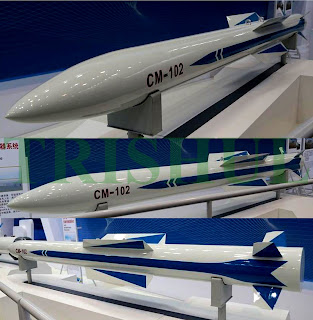Myanmar last March became the second
export customer (after Pakistan) for the FC-1 ‘Xiaolong’ light multi-role
combat aircraft (MRCA) when it inked a contract with the Chinas Aero Technology
Import-Export Corp (CATIC) for an initial 12 aircraft along with a cockpit
procedures trainer, while retaining the option to procure another 12 at a later
date.
Deliveries are scheduled to begin in December 2017 and these FC-1s will
eventually replace Myanmar’s existing Xi’an F-7M Airguard and Nanchang A-5IIIC
combat aircraft, which had been procured in the early 1990s.
The FC-1’s formal R & D process
began when Pakistan inked a procurement contract
with CATIC in 1999.
The MRCA’s design was frozen by China’s 611 Institute
in February 2001. Subsequently, six flying prototypes were built by the Chengdu
Aircraft Corp (CAC). The first prototype was rolled out on May 31, 2003 and its
maiden flight took place on August 25, 2003. The third prototype, built to
series-production standards, first flew on April 9, 2004. The fourth prototype flew
in April 2006.
The first tranche
of six FC-1s, known as JF-17 Thunder Block-1, was delivered in flyaway condition
to the Pakistan Air Force (PAF) between March and April 2008.
Following this, a
supplementary contract for 42 more JF-17s was inked on March 7, 2009. Of these,
only the first two were delivered in flyaway condition, while the remaining were
supplied in semi-knocked-down (SKD) condition to the Kamra-based Pakistan
Aeronautical Complex (PAC). The first PAC-assembled JF-17 was rolled out on
November 23, 2009.
To date, CAC has delivered 50 JF-17
Block-1s and four JF-17 Block-2s (featuring a fixed aerial refuelling probe),
with another 46 JF-17 Block-2s due for delivery by 2020. CAC is building them
at a rate of eight per year.
The RD-93 turbofans for both the FC-1 and its
JF-17 version are produced by the Moscow-based Chernyshev Machine-Building
Plant, a subsidiary of Russia’s United Engines Corp (UEC) and supplied to CATIC.
The PAF plans to procure 50 Block-3
versions of the JF-17 in the following decade and each of these are likely to be
equipped with a FWS-13 Taishan turbofan (now being flight-tested on board an
IL-76MD testbed at the PLAAF’s China Flight Test Establishment at
Xian-Yanliang air base in Xi’an, Sha'anxi province), passive electronically
scanned array multi-mode radar (PESA-MMR) along with a CATIC-supplied infra-red search-and-track (IRST) sensor and a
Sicong Group-developed helmet-mounted display system (HMDS).
CATIC is presently developing the
JFT-17, a tandem-seat operational conversion trainer that is expected to make
its maiden flight by the year’s end.
Data On FC-1’s Avionics Suite
FC-1’s Weapons Package
The CPMIEC-developed CM-400AKG supersonic
air-launched ASCM has a terminal cruise speed of Mach 3 and a maximum range of
120km.


























































